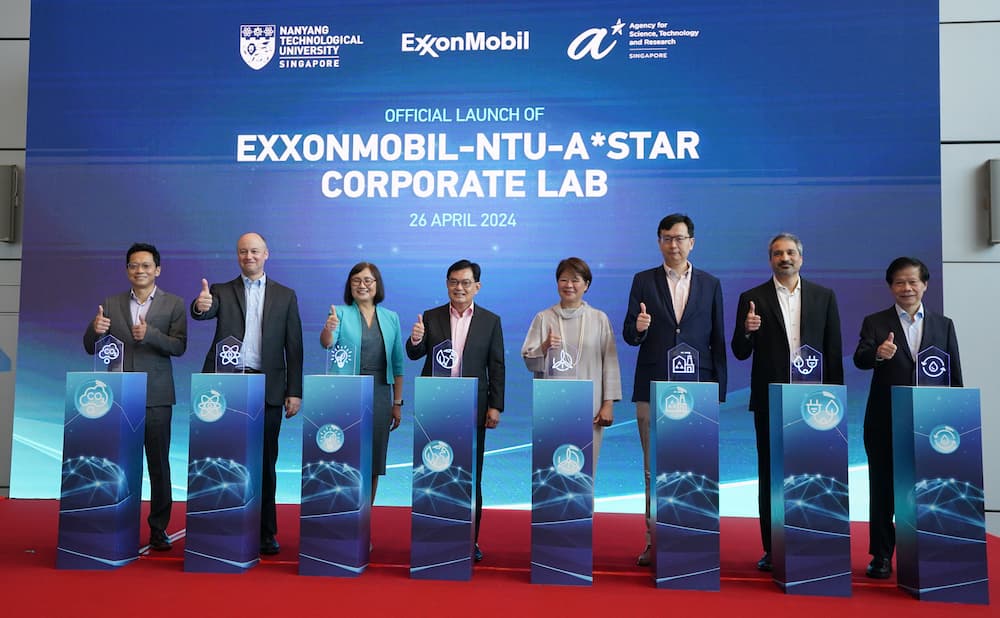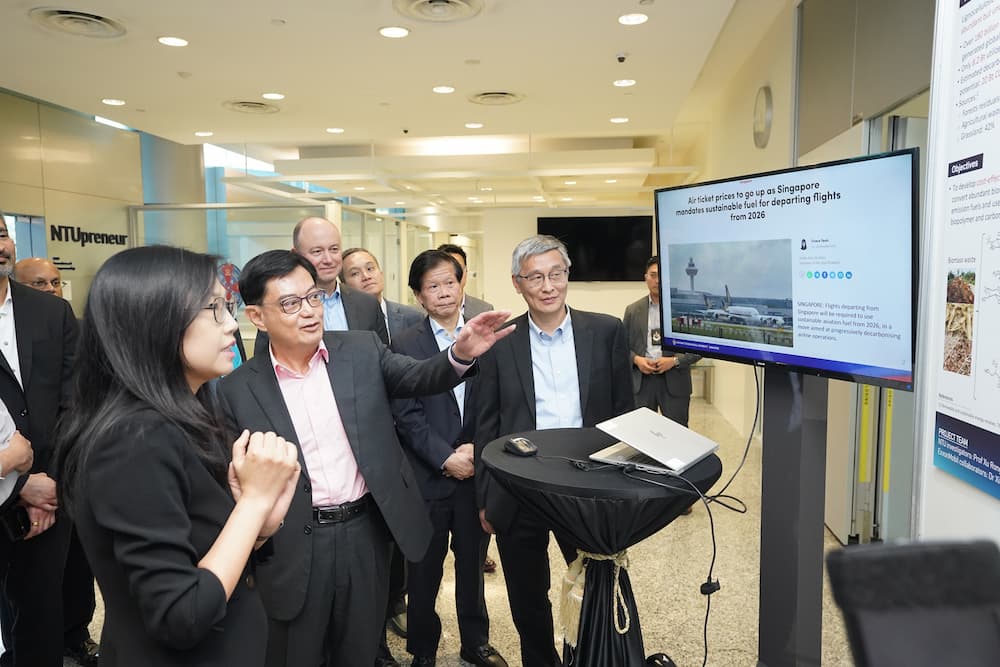
(Photo: Nanyang Technological University)
Singapore has launched a $60 million lab to drive research and development in low-carbon technologies to help achieve net-zero emissions by 2050.
Launched on April 26, the corporate lab is a collaborative initiative between Nanyang Technological University (NTU), the Agency for Science, Technology and Research (A*Star), and ExxonMobil. It aims to research solutions like carbon capture and hydrogen production.
Speaking at the launch at NTU, Singapore’s deputy prime minister Heng Swee Keat emphasized that transforming carbon-intensive industries, especially energy and chemical sectors, would be a priority.
He highlighted Jurong Island's significance, with over 100 leading companies in these sectors. The government aims to quadruple the output of sustainable products there by 2050 and achieve a reduction of over six million tons of carbon per year by then.
New way to capture, storage CO2
He added that research into these areas could be a crucial means to achieve the objectives of greening Singapore’s chemical and industrial hub.
The lab will focus on developing solutions in various areas, including the exploration of new technologies to capture CO2. It aims to combine captured CO2 with industrial by-products like desalination brine and incineration ash to produce construction materials.
Grzegorz Lisak, associate professor from NTU’s school of civil and environmental engineering noted that cost is still a main barrier to scaling up the use of carbon capture technologies and is something that the research program wants to tackle.
At present, the CO2 emitted by waste-to-energy plants typically has low concentration levels, which makes capturing the gas challenging and costly.
Then there is the problem of storing CO2 permanently. One way would be to inject it into concrete, which is a long-term option that can potentially be used in construction, Lisak said.

(Photo: Nanyang Technological University)
Biomass and hydrogen production
Professor Xu Rong from NTU’s school of chemical engineering and biotechnology mentioned that the program will also delve into converting biomass, such as oil palm waste and sugarcane waste, into greener and cost-efficient fuels suitable for aviation, maritime, and chemical sectors.
One of the constraints with sustainable aviation fuel, which is currently made from animal fats and vegetable oil, is that its quantity is limited and therefore still expensive, said Prof Xu, who will be a co-director of the new lab.
She pointed out that one of the limitations of sustainable aviation fuel, currently derived from animal fats and vegetable oil, is its limited quantity, making it still expensive.
Another field of focus would be to develop a process that can convert methane into low-carbon hydrogen, a chemical reaction that operates at high temperatures. To achieve this, a reactor must be safe and heat-resistant, said Xu. This could lower the cost and carbon footprint of conventional hydrogen production.
The lab will bring together over 50 researchers, postgraduate and undergraduate students, and engineers. It is funded by the National Research Foundation under Research, Innovation and Enterprise 2025 plan.




